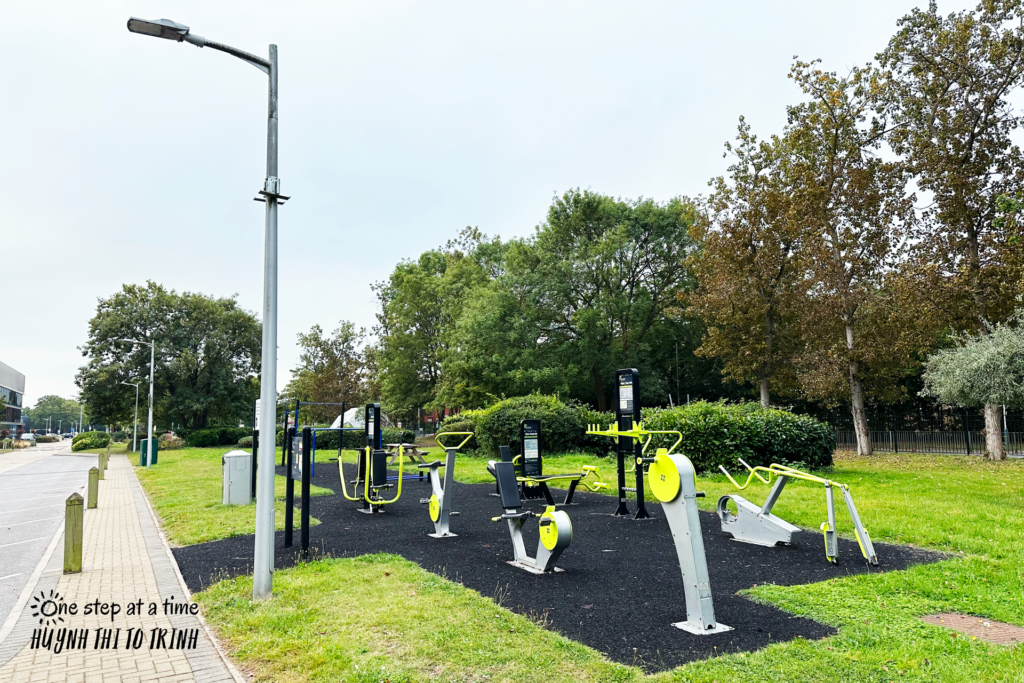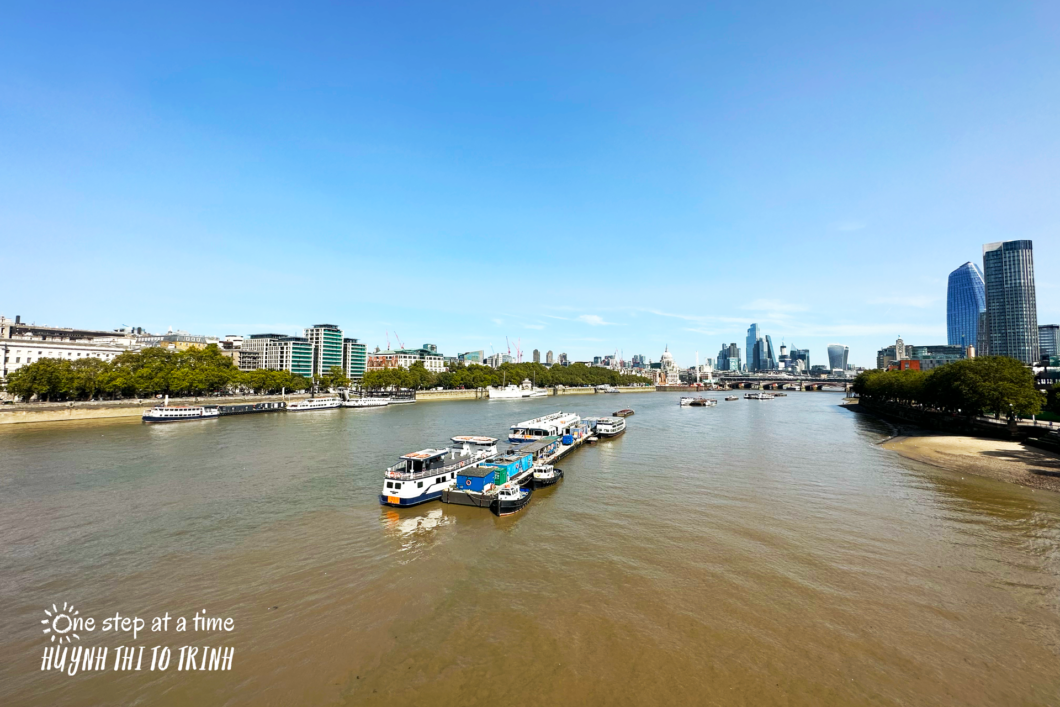Part 2. Drawbacks of Studying Abroad – First Impressions and Tips for Overcoming Challenges
When you choose to study abroad, you open yourself up to an enriching adventure. It offers a unique chance to engage in a different culture, meet people from various backgrounds, and develop a global mindset. However, like any new adventure, certain downsides and challenges come with it. Continuing from Part 1 in a separate blog post, Part 2 highlights some drawbacks of studying abroad. Additionally, I will share personal tips and experiences that have helped me overcome these challenges.
Please keep in mind what I am sharing are first impressions. I have started this study abroad journey for only six weeks; hence, my experience will develop throughout the academic year. As a result, I might have follow-up blog posts to add more insights later on for you. (If you want to contribute your experience to this blog, please email me).
1. Access to Familiar Cuisine
One of the first things you may notice when studying abroad is the absence of your favourite home-cooked meals. For example, suppose you come from a place like Vietnam with a rich culinary heritage. In that case, it can be disheartening not to find your traditional breakfast delights (Pho, Banh Cuon, Banh Mi” readily available. However, this allows you to explore new cuisines and adapt your cooking skills to the local ingredients.
Tips:
- Take the time to discover local markets and supermarkets to create a fusion of flavours, keeping your personal touch alive. By comparing prices and exploring different grocery stores, you can find the best value for your student budget while maintaining a balanced diet.
- Treating cooking as a therapeutic activity allows me to unwind and express my creativity using available ingredients. It is a welcome remedy after a day with 4 to 8 hours of lectures. When I cook, I enter a state of relaxation, immersing myself in the process while enjoying my favourite tunes through my headphones. It’s a delightful way to nourish my body with a well-balanced, home-cooked meal, take care of myself and embrace responsibility.
2. Adjusting to an Unfamiliar Environment
Moving to a new country means adapting to a different environment with its rules and systems. While it may take some time to get used to the changes, keeping an open mind and observing the locals can expedite the process.
Tips:
- Familiarise yourself with the transport system, learn about local customs, and feel free to ask for help if you are uncertain. Locals and the staff are generally welcoming and willing to assist you in navigating through the surroundings.
- When you’re in the UK, the TFL app is handy for planning your journeys. However, I find Google to be my go-to guide for directions. With Google, all I need to do is enter my desired destination, and it provides me with various transportation options, combining different means to get there. The level of detail and utility it offers is truly invaluable.
3. Coping with Unfamiliar Weather
Coming from a tropical climate, adjusting to colder temperatures can be a challenge. However, with the proper preparation, you can embrace and even enjoy the different weather conditions.
Tips:
- Invest in warm clothing and accessories that can help you stay cosy while remaining stylish.
- Make use of weather forecast apps to plan your attire and activities accordingly. Embracing the change in weather can add a touch of excitement and variety to your daily life.
- An electric blanket has become my go-to solution for keeping warm during cold nights. Although I’m already fortunate to have a heater in my room as part of my campus rent that provides electricity, an electric blanket under my bedsheet adds an extra layer of warmth.
- Always bring an umbrella, a water-resistant coat and a bottle of water.
My workout activities:
To combat the cold weather in the UK, I make it a point to exercise regularly. It not only helps with blood circulation but also assists in acclimating to the weather. I incorporate stretching into my daily routine, usually twice a day.

Additionally, I go for a jog after my classes or early in the morning despite the chilly temperatures. I dress in layers and bring along a hot water bottle for added warmth. To add variety to my workout, I also enjoy dancing and doing cardio exercises either in my room or at the outdoor gym area on Brunel’s campus, which is one of my favourite spots.
Lastly, I’ve discovered a Muay Thai class at Uxbridge Martial Arts Academy, which takes only a thirteen-minute walk from my campus. The fee looks reasonable, so I have cleared some evenings to keep training in my favourite sport. Taking care of both physical and mental fitness has always been my top priority.
4. Sharing Spaces with Flatmates
Living on campus often entails sharing common areas, such as kitchens and bathrooms (for some Halls) with fellow students. Some people may have different levels of cleanliness or organisation, which can lead to potential conflicts.
Tips:
If you value hygiene and tidiness, make an extra effort to communicate with your flatmates respectfully and establish common ground for the benefit of everyone.
- At Brunel University, we are lucky to have the support of a kitchen cleaning service that visits us once a week, for which we are truly grateful.
- Additionally, we have established a group chat among all the flatmates to ensure we maintain clear expectations and keep open lines of communication with one another.
- Remember to read the instructions for waste disposal carefully to categorise your trash correctly.
5. Commuting vs. On-Campus Living
Choosing between living on or off campus is a personal choice that depends on various factors, including your budget.
While living on campus can offer the advantage of proximity to your classes, off-campus housing might require a longer commute.
Balancing the financial aspect and transportation expenses is crucial. Assess your situation and evaluate the trade-offs to determine the living arrangement best suits your needs and preferences.
My personal decision:

I decided to live on campus because it allows me to make the most of my time by giving me extra hours for work or studying every day. My Halls are just a five-minute walk from the classrooms, providing convenience. Additionally, I can savour my pre-prepared lunch and take a short 20-minute power nap during the breaks between classes. (Yes, power napping is my priority to keep being productive for the rest of the day).
6. Dealing with Unexpected Noise
Having a good night’s sleep is essential for productivity and well-being. However, living in a shared space can sometimes mean dealing with disruptive noise.
Remember that as you settle into your Halls, you’ll find yourself surrounded by a diverse group of students with varying backgrounds and social behaviours. It’s essential to remember that noise tolerance and standard norms may differ among individuals. As a mature student, you might face unique challenges when managing younger students in their early 20s. Their priorities might be more focused on partying and embracing college activities.
Tips:
- If you are an early riser (like me) and prefer early nights, consider using earbuds or earplugs to block unwanted sounds.
- Additionally, communicating politely with other residents regarding noise levels can create a harmonious living environment.
- If you find it difficult to resolve conflicts with fellow residents, consider exploring alternative solutions such as requesting a change of Halls or relocating to a different accommodation.
Your sleep quality and overall well-being are important, and it’s crucial to prioritise them. Remember, you will only be able to focus entirely on your academic year if you’re taking care of yourself.
7. Loneliness can creep in sometimes
Studying abroad can be an exciting and enhancing experience, but it’s not uncommon for individuals to face a sense of loneliness while being away from their familiar support networks.
Adjusting to a new environment, culture, and social dynamics sometimes leaves you feeling isolated. However, there are several effective ways to overcome this loneliness and make the most of your study abroad journey.
Tips:

- Connect with fellow students: Reach out to other international students with similar experiences. Attend social events, join clubs, or participate in campus activities to meet new people and build friendships.
- Seek out community groups: Look for community organisations or online groups that cater to international students or expats. These communities often provide a supportive network where you can connect with others who understand your feelings and experiences.
- Explore the local culture: Now and then, set aside time to seek a change of environment. There are plenty of options for leisure activities like discovering Art Galleries (if you want to learn more about history and cultures) or visiting local markets (if you are a food lover), or you can do both.
Personal Experience
Among the remarkable local markets, I have enjoyed visiting Camden Market, often described as “a melting pot of music, fashion, experiences, and food across four quarters.”

Additionally, I’ve frequented Borough Market, a renowned street food market in the heart of London. With a rich 1,000-year heritage, Borough Market stands as an iconic world-class produce market and serves as a significant influencer in the culinary landscape.
Visiting these vibrant markets and uncovering new cultural experiences not only adds diversity to my weekends but also provides a refreshing boost to my mental fitness. These outings allow me to immerse myself in various communities, indulge in unique culinary delights, and broaden my understanding of different lifestyles.
More Tips:
In this modern world we are living in, prioritising self-care is not a luxury but a necessity.
- Keep in touch with loved ones: Make it a priority to regularly connect with your family and friends back home through video calls, emails, or handwritten letters. Sharing your experiences and emotions with them can help alleviate homesickness and provide a much-needed connection. Just like I’m doing here on this blog, writing and sharing my experiences, it is a meaningful way of coping with loneliness while helping others prepare for what to expect when it comes to studying abroad.
- Take care of yourself: Nurture your physical and mental well-being by engaging in activities you enjoy, exercising regularly, and maintaining a balanced diet. In addition, practising self-care will boost your confidence and result in you embracing new opportunities.
- Seek support services: Locate support services offered by your educational institution, such as counselling or student support groups. These resources are designed to assist students facing challenges and can provide valuable advice and guidance.
Remember, the initial feelings of loneliness are temporary, and as you gradually settle into your new environment, you will build meaningful connections.
Studying abroad comes with challenges, but with the right mindset and a willingness to adapt, these disadvantages can be overcome. Embrace the opportunity to try new cuisines, become acquainted with the local environment, and make the most of the different weather. By fostering open communication with flatmates and finding ways to cope with noise, you can create a comfortable living space. Remember, studying abroad is about experiences and personal growth, so make the most of the journey and enjoy every moment!
Explore Part 3 for more tips on maximising for a successful academic year.


